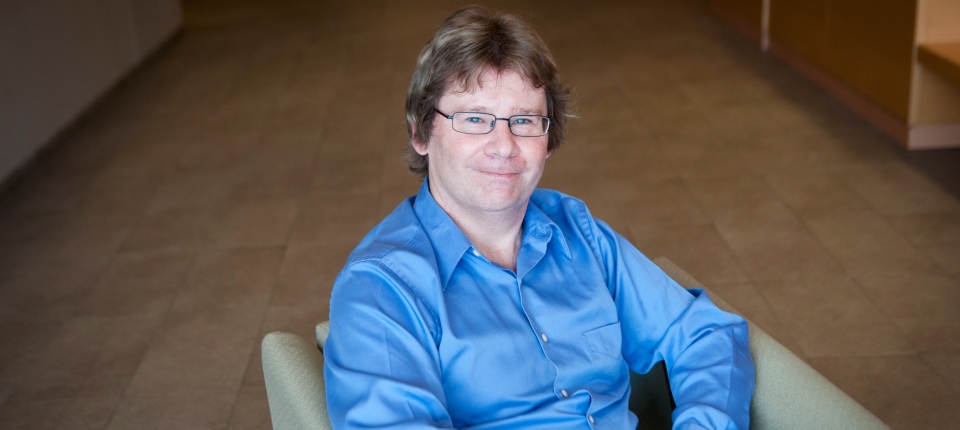David Crick joins Telfer as the Paul Desmarais Professor of International Entrepreneurship

The Telfer School welcomes David Crick as a full professor in entrepreneurship. Professor Crick has more than twenty years’ experience in research, consultancy and teaching in the U.K. and New Zealand where he also held full professorial roles. His current research focuses on start-up firms with limited resources and an evolving lean business model, of which internationalization processes and the support requirements of entrepreneurs are a core aspect.
Professor Crick says one of his core philosophies is to undertake research that informs students and practitioners while contributing to academic theory. This includes studies that help create an effective ‘ecosystem’ for entrepreneurs to thrive via work with various networks of policy makers, incubators, investors and the entrepreneurs themselves.
“I’m of the firm belief that entrepreneurship should be supported from a whole range of different dimensions,” says Crick, the Paul Desmarais Professor of International Entrepreneurship and Marketing. “In Ottawa, you certainly have, at least in theory, the opportunity for a lot of deep entrepreneurship learning to take place, and it will happen as the public, private and university sectors come together to create the kinds of ecosystems where entrepreneurs can identify and exploit growth opportunities.”
Critical to these ecosystems is the internationalizing processes successful start-ups employ to reach overseas markets. In this respect, New Zealand, where Crick was recently Professor of International Entrepreneurship at Victoria University in Wellington, provides an interesting example for Canada. Entrepreneurs there are obliged to address the international dimension in their business plans – right from the start, says Crick. “Otherwise, their funders aren’t going to make any money (New Zealand is a country of just over 4 million people). In the first 12 months, entrepreneurs have to start validating their business models with international markets in mind.”
And yet internationalization represents only one dimension of entrepreneurship. “It is obviously a goal for many start-ups. I don’t dismiss that in any way, but I do think that is a restricted view: this isn’t a priority with everyone.” There are many examples of small lifestyle businesses in tourism and hospitality in this category, he says.
Not-for-profits, too, are an important and interesting area of entrepreneurship in their own right. “One thing that I have noticed here in Canada, much more than the U.K. and New Zealand, a lot of the students in some of the entrepreneurship classes are interested in not-for-profits, and it’s something we should be supporting them with if that’s their goal.”
The sheer diversity of projects that can interest the students is actually a key aspect of entrepreneurship that makes it a rewarding subject to teach, says Crick. This offers opportunities for postgraduate study at the master’s level as well as in the new Ph.D. programme starting in 2016.
“What is exciting about the entrepreneurship field is the opportunity to support the great variety of ideas and projects that interest entrepreneurship students and to facilitate their engagements with practitioners and policy makers – to support all of the objectives that budding entrepreneurs might be pursuing.”

